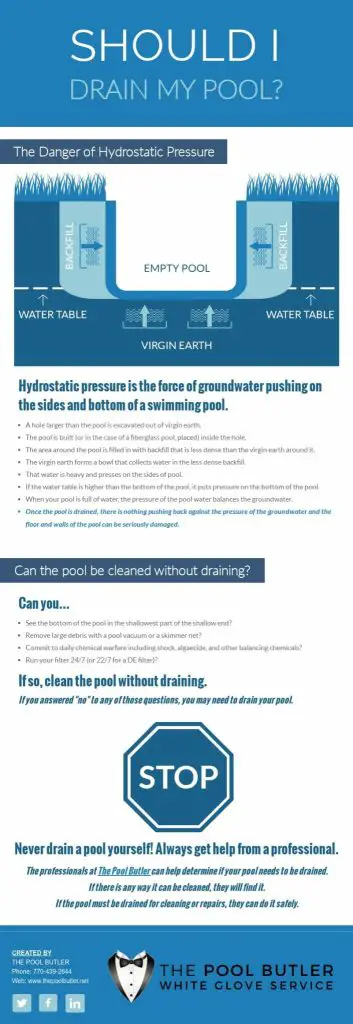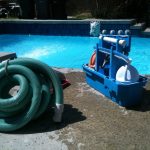Proper maintenance of your pool is essential to ensure its longevity and the safety of its users. One crucial aspect of pool maintenance is the regular draining of the pool water. However, determining the frequency of pool draining can be a bit confusing for pool owners. In this article, we will discuss the factors that influence how often you should drain your pool and provide guidelines to help you make the right decision.
Factors Influencing Pool Draining Frequency
Several factors can influence how often you should drain your pool:
- Water Quality: The quality of the pool water is a significant factor in determining the frequency of pool draining. If the water becomes excessively contaminated or chemically unbalanced, it may be necessary to drain and refill the pool.
- Usage: The frequency and intensity of pool usage can impact the need for draining. Pools that experience heavy usage may require more frequent draining to maintain water quality and hygiene.
- Climate: The climate in which the pool is located can also play a role. In areas with high temperatures and intense sunlight, evaporation rates are higher, leading to an increase in the concentration of dissolved minerals and chemicals in the pool water, which may necessitate more frequent draining.
- Chemical Levels: Imbalanced chemical levels can lead to the formation of scale and other deposits on pool surfaces, indicating the need for draining and refilling the pool.
Guidelines for Pool Draining Frequency
While the specific frequency of pool draining can vary based on the factors mentioned above, the following are general guidelines to help you determine how often you should drain your pool:
| Pool Type | Frequency of Draining |
|---|---|
| Concrete or Gunite Pool | Every 5-7 years |
| Vinyl Liner Pool | Every 5-7 years |
| Fiberglass Pool | Every 10-15 years |
It’s important to note that these are general recommendations, and the actual frequency may vary based on individual circumstances. Regular monitoring of water quality, chemical balance, and pool usage is crucial in determining when your pool needs to be drained and refilled. Additionally, consulting with a professional pool service provider can offer valuable insights specific to your pool’s needs.

Credit: barrierreefpools.com
Signs That Your Pool Needs Draining
While following the general guidelines is helpful, there are specific signs that indicate the need for immediate pool draining:
- Excessive Contamination: If the pool water becomes excessively contaminated with algae, debris, or other pollutants, it’s essential to drain and clean the pool to restore water quality.
- Chemical Imbalance: Persistent chemical imbalances that cannot be corrected through regular water treatment may necessitate draining to reset the pool’s chemical levels.
- Surface Staining: The presence of stubborn stains on the pool surfaces, such as scale or mineral deposits, may indicate the need for draining and scrubbing the pool interior.
- Calcium Buildup: High levels of calcium hardness can lead to scaling on pool surfaces, requiring draining to remove the buildup and prevent damage.

Credit: www.thefibreglasspoolcompany.com.au
Professional Assistance
When in doubt about the condition of your pool water or the need for draining, seeking professional assistance is highly recommended. A qualified pool service provider can conduct water tests, assess the condition of the pool, and offer expert advice on the appropriate course of action.
Ultimately, the frequency of pool draining depends on a combination of factors specific to your pool and its environment. By staying attentive to water quality, chemical balance, and usage patterns, you can make informed decisions regarding when to drain your pool to ensure a safe and enjoyable swimming experience for all.



